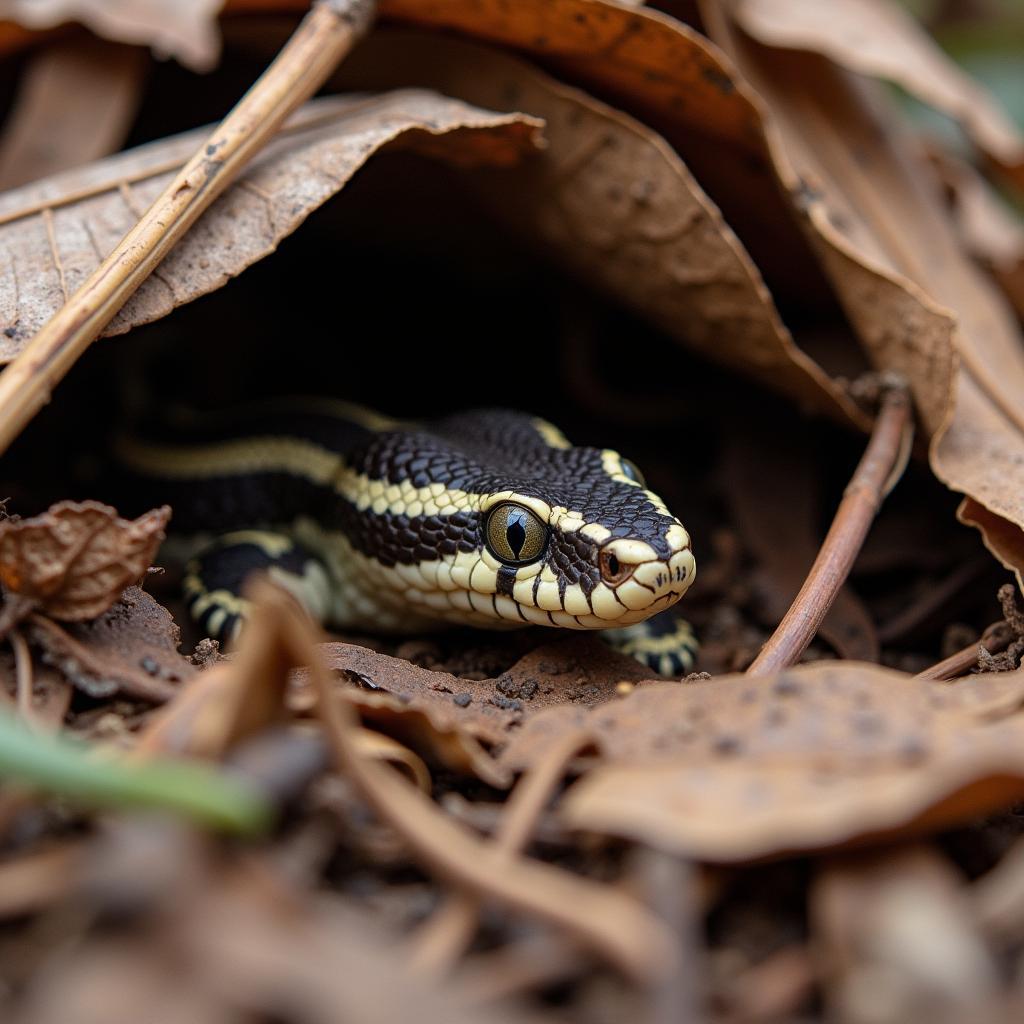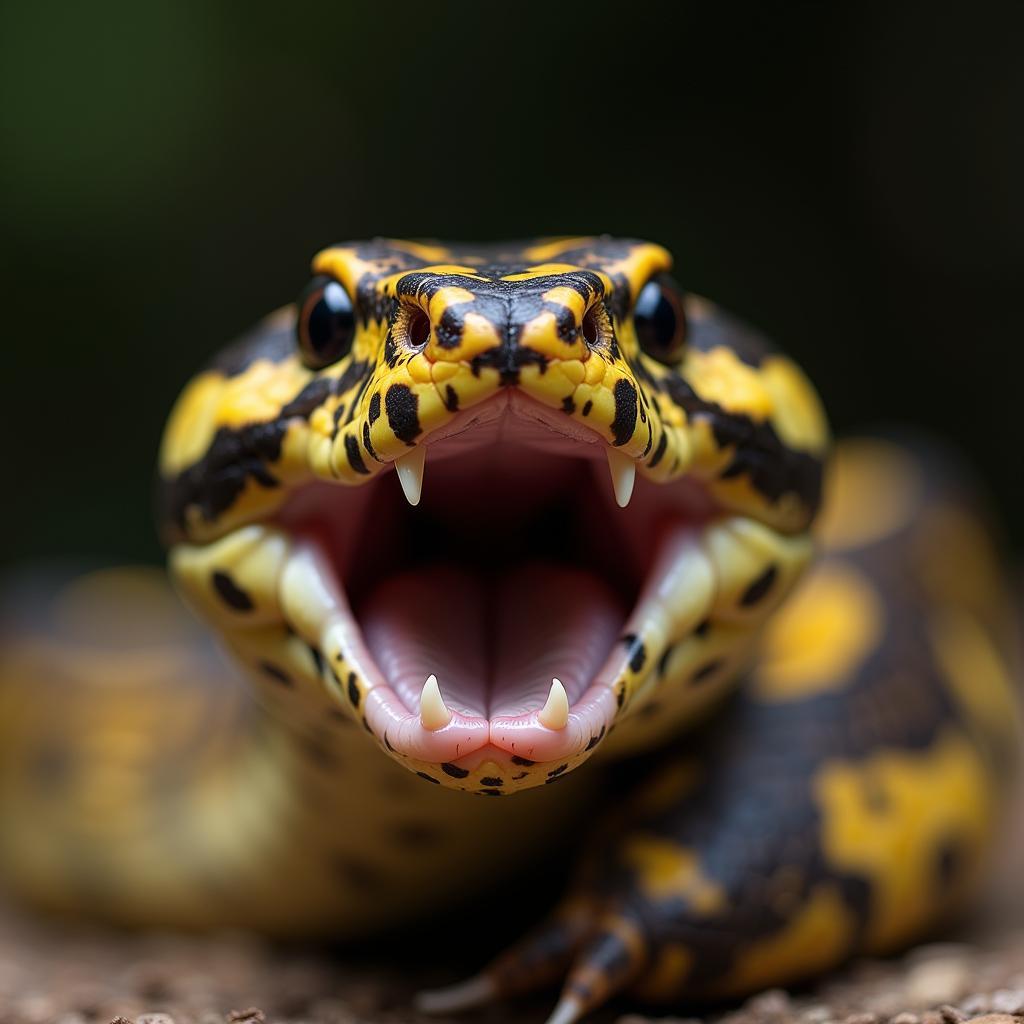The Enigmatic African Bitis Viper: A Comprehensive Guide
The African Bitis Viper, a group of venomous snakes found throughout the African continent, holds a place of fascination and fear in the hearts of many. These vipers, known for their potent venom and distinctive features, represent a diverse group with varying sizes, colors, and habitats. This article delves into the captivating world of the African bitis viper, exploring their characteristics, behavior, and significance within African ecosystems.
Unveiling the African Bitis Viper: Characteristics and Diversity
African bitis vipers are a diverse group, exhibiting a wide range of physical characteristics. They are generally stout-bodied with triangular heads, a feature characteristic of many viper species. Their scales are keeled, giving them a rough texture. Coloration varies greatly among the different species, ranging from earthy browns and grays to vibrant greens and yellows, providing effective camouflage in their respective environments. Some species, like the african gaboon viper, possess striking geometric patterns that further enhance their ability to blend seamlessly into their surroundings. These vipers are also known for their vertically elliptical pupils, a common trait among nocturnal predators.
Their size also varies significantly. Some species, like the rhinoceros viper, can reach impressive lengths, while others remain relatively small. Regardless of size, all African bitis vipers share one key feature: their potent venom. This venom is primarily hemotoxic, meaning it disrupts blood clotting and causes tissue damage. While bites from these vipers can be life-threatening, they are not typically aggressive and will only strike if provoked or threatened.
Habitats and Behavior of the African Bitis Viper
African bitis vipers inhabit a variety of environments across the continent, from savannas and grasslands to forests and mountainous regions. They are primarily terrestrial, preferring to remain hidden amongst leaf litter, under rocks, or in burrows. This preference for concealment is a reflection of their ambush hunting strategy. They are primarily nocturnal hunters, relying on their heat-sensing pits to locate prey in the darkness. Their diet consists mainly of small mammals, amphibians, and reptiles.
 An African Bitis Viper expertly camouflaged in dry leaves, illustrating its ambush hunting strategy.
An African Bitis Viper expertly camouflaged in dry leaves, illustrating its ambush hunting strategy.
One fascinating aspect of their behavior is their defensive posture. When threatened, they will coil tightly, hiss loudly, and flatten their bodies to appear larger and more intimidating. This display often serves as a sufficient deterrent, preventing potential predators from attacking.
The African Bitis Viper: Significance in African Ecosystems
As apex predators within their respective habitats, African bitis vipers play a crucial role in maintaining the balance of African ecosystems. By controlling populations of rodents and other small animals, they help regulate the food chain and prevent overgrazing or other ecological imbalances. They also serve as prey for larger predators, further contributing to the intricate web of life on the continent.
Dr. Abena Kwame, a leading herpetologist specializing in African reptiles, emphasizes the ecological importance of these vipers: “The African bitis viper, despite its fearsome reputation, is an integral component of African ecosystems. Their presence ensures the health and stability of these environments.”
The African Bitis Viper and Human Interactions
While bites from African bitis vipers can be dangerous to humans, interactions are relatively rare due to the snakes’ reclusive nature. Most bites occur when humans accidentally step on or disturb a hidden viper. It is essential to exercise caution when venturing into areas where these vipers are known to reside. Wearing appropriate footwear and being mindful of one’s surroundings can significantly reduce the risk of encounters.
 Detailed view of an African Bitis Viper's venomous fangs, highlighting their potential danger.
Detailed view of an African Bitis Viper's venomous fangs, highlighting their potential danger.
Professor Joseph Ngugi, a wildlife conservationist with extensive experience in East Africa, states, “Education and awareness are crucial in mitigating human-wildlife conflict. Understanding the behavior and habitat preferences of the African bitis viper can help people coexist peacefully with these fascinating creatures.” Understanding these vipers is crucial not only for human safety but also for their conservation. Habitat loss and illegal wildlife trade pose significant threats to some species of African bitis vipers. By raising awareness and promoting conservation efforts, we can help ensure the survival of these remarkable creatures for generations to come. For further insights into other fascinating African reptiles, explore the african jararaca or the african kaboom viper.
Conclusion: Appreciating the African Bitis Viper
The African bitis viper, with its potent venom and diverse adaptations, is a truly remarkable creature. By understanding their behavior, ecological role, and the potential risks they pose, we can foster a sense of respect and appreciation for these fascinating snakes and contribute to their continued existence within the vibrant tapestry of African wildlife. While the african gaboon viper snake is well known for its unique characteristics, it is important to understand the entire Bitis Viper family. Learn more about the remarkable african anaconda downloading.
FAQ
- Are all African bitis vipers venomous? (Yes, all African bitis vipers are venomous.)
- What should I do if I am bitten by an African bitis viper? (Seek immediate medical attention. Antivenom is available for many species.)
- What is the primary prey of the African bitis viper? (Their diet primarily consists of small mammals, amphibians, and reptiles.)
- Are African bitis vipers aggressive? (They are not typically aggressive and will only strike if provoked or threatened.)
- Where can I find more information about African bitis vipers? (Reputable herpetological resources and scientific publications can provide detailed information.)
- What is the lifespan of an African Bitis Viper? (Lifespans vary depending on the species but can range from 10-20 years in the wild.)
- How can I contribute to the conservation of African bitis vipers? (Supporting reputable conservation organizations and promoting responsible wildlife tourism can help protect these animals and their habitats.)
When you need support, please contact Phone Number: +255768904061, Email: [email protected] Or visit: Mbarali DC Mawindi, Kangaga, Tanzania. We have a 24/7 customer service team.
